#matrons
Explore tagged Tumblr posts
Text

Norsery Rhymes from A to Z Matrons Gabiae, the Giving Ones
Happy Thorsday! - Here’s another 20 min sketch of a Norse (and Germanic, Celtic) mythological characters. This week it’s the Matrons Gabiae / Matronus Gabiabus / Lunonibus Gabiabus.
Three guardian ancestral protective Matron (Mothers) and Goddesses, found mentioned around Rovenich near Euskirchen. And are thought to be possible counterparts to the Goddess Gefjon.
Their name has generally been understood to translate to "The Giving Ones". Which is thought to mean both 'those who give, and 'those who take'.
#norse mythology#gabiae#norsemyth#gabiabus#conceptart#characterdesign#concept art#character art#drawing#sketch#lineart#linedrawing#character design#goddesses#matrons
4 notes
·
View notes
Text
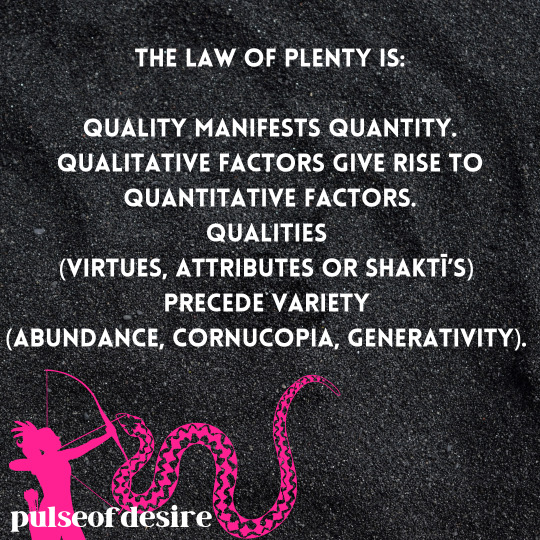
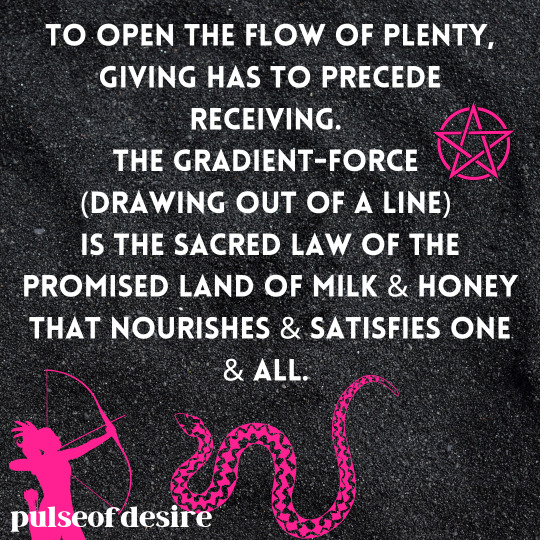
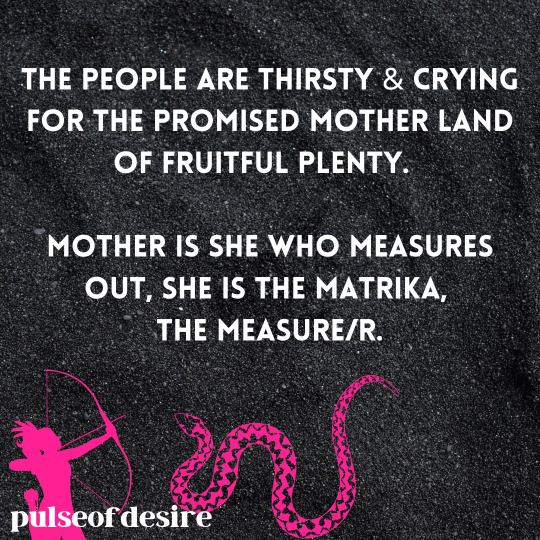
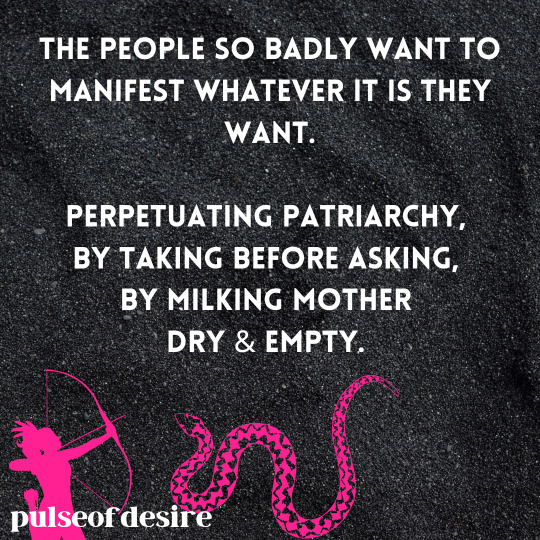


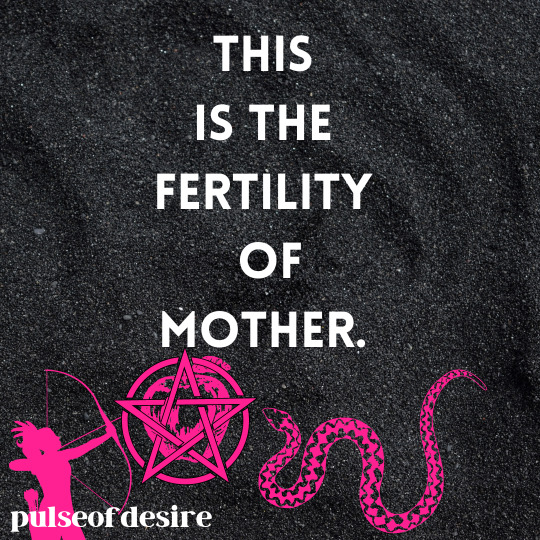
𝐐𝐔𝐀𝐋𝐈𝐓𝐈𝐄𝐒
Manifestation of heart’s desire
The rule/law is this—
Quality manifests quantity.
Qualitative factors give rise to quantitative factors.
Qualities (virtues, attributes or Shaktī’s) precede Variety (abundance, cornucopia, generativity).
To open the flow of plenty, giving has to precede receiving. The gradient-force (drawing out of a line) is the sacred law of the promised land of milk & honey that nourishes & satisfies one & all.
The people are thirsty & crying for the promised Mother land of fruitful plenty.
Mother is she who measures out, she is the Matrika, the Measure/r.
The people so badly want to manifest whatever it is they want.
Perpetuating patriarchy, by taking before asking, by milking Mother dry & empty.
Fruitfulness results from bringing things together correctly, seed in soil with water & light yields trees with fruits of plenty.
𝓢𝓪𝓶kalpa is connecting things (𝓢𝓪𝓶) through work (intention, attention & action) to beget fruits, to generate more, to bring forth abundance.
This is the fertility of Mother.
#fruitfulness#abundance#manifest#magic#witch#animism#mother#energy#matrons#matriarchal#matrika#law of attraction#natural laws#polarity#virtue#dharma#natural law#feminine magic#shakti#creativity#fertility#cornucopia#presence
3 notes
·
View notes
Text
During the period of the Roman Republic , the place that was mainly reserved for her was that of the domestic reality, with the task of taking care of the domus within the Roman family , under the protection and tutelage of the pater familias , be it the father or the husband. She was in no way permitted to hold public office or start a political activity .
The most striking exception, in this regard, was however that constituted by the group of six Vestal Virgins who, despite being women, maintained a very high social status within the Roman religion with offerings expressly dedicated to them.
In Roman society , matrons represented what the most important female deities represented, especially in their role as faithful mothers and wives. The matron was the mother (mater familias) , dignified and respectable, responsible for the proper maintenance of the house and the growth of the children; exempt from domestic and agricultural work, except for spinning wool, a tradition that the Romans derived from the historical episode of the rape of the Sabine women . As the mother of the family, she had a certain power within the house, directed the servants and slaves and was called "domina" (mistress).
A festival specially celebrated in Rome , during the Kalends of March, called Matronalia , was dedicated to Roman matrons . Among the most admired and esteemed women in Roman history are the matrons Veturia (mother of Gnaeus Marcius Coriolanus ) and Cornelia (mother of the two Gracchi , Tiberius Gracchus and Gaius Gracchus ) [ 1 ] . During the Roman Empire , the term was often used in a broader sense, as an honorific title, especially for women of more illustrious lineage, such as Antonia Minor , Servilia and Clodia .
It also appears that matrons, at least on certain occasions, banded together and organised, as demonstrated by their demand for the abolition of the Lex Oppia [ 2 ] and their opposition to the measures of the Second Triumvirate [ 3 ]. This behaviour, to Roman men, in any case appeared entirely inappropriate for a respectable matron.
A matron could be recognized by her stole [ 4 ] and her hair braided with vittae (bands), considered as necessary objects to be worn in the hair.
In the first Christian churches there was a special space dedicated to them, usually a raised loggia, called the matroneum .
In current language, the term has come over time to indicate a lady of particular dignity and gravity but also, with a derogatory meaning, an overweight elderly woman [ 5 ] . The derogatory meaning is historically unfounded, given the importance of the "status" of matrona in the Roman Empire as an example of the first female emancipation . "Matrona", in addition to being a very important status for women in the imperial age , over the centuries has also become a common name for women and, in the 5th century, that of a saint, whose feast day is January 25 ( Matrona di Capua , patron saint of San Prisco , in the province of Caserta ).
During the Middle Ages , the word instead indicated the mature woman who helps young women to give birth, with the meaning, therefore, of midwife .
Aurelia Cotta , mother of Gaius Julius Caesar
Agrippina the Elder , wife of Germanicus
Agrippina the Younger , second wife of Emperor Claudius and mother of Nero
Cecilia Spazzane, women of the Caecilii Metelli family
Cornelia Cinna , the first wife of Julius Caesar
Pompeia Silla , second wife of Julius Caesar
Calpurnia , the third wife of Julius Caesar
Atia Major , mother of the first Roman emperor Augustus
Vipsania Agrippina , first wife of Tiberius
Alfidia , daughter of the Roman magistrate Marcus Aufidius Lurcone
Mucia Tertia , wife of Gnaeus Pompeius Magnus
Fulvia (wife of Mark Antony) (the first woman whose face appeared on Roman coins)
Livia Drusilla , wife of Augustus
Scribonia , second wife of Augustus
Julia Livilla (daughter of Germanicus) , sister of Caligula
Drusilla , sister of Caligula
Cornelia , mother of the Gracchi
Lucretia , wife of Collatinus
Flavia Julia Helena , saint, augusta and mother of Constantine I, Roman emperor.
#female#women#history#herstory#her-story#her story#roman lead#roman leaders#female roman leaders#matron#matrons#matron saint
0 notes
Text

Nightwarden.
#sharp sharp woman#i love you so much#minthara#minthara baenre#bg3#baldur’s gate 3#art#fanart#Matron MOTHER💜#she told me to shut up and i set myself on fire#full disclosure i referenced a lot of things from an igor sid painting#i think she looks like she just came out of diablo 4…
3K notes
·
View notes
Text
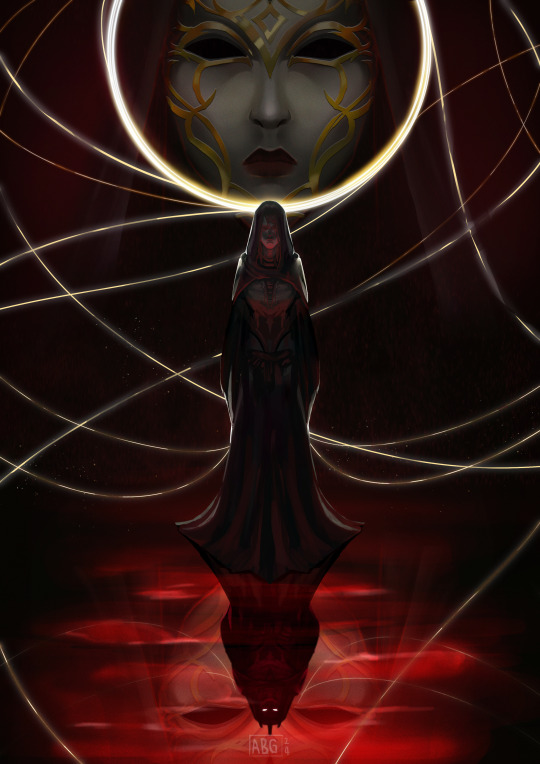
I didn't post the Matron on Tumblr?? There's a cool time-lapse over on Instagram @abyssgrant
#abg_art#fantasy#commissions open#dnd#dungeons and dragons#ttrpg character#ttrpg art#critical role#critical role fanart#critrole#matron of ravens#raven queen#vox machina#tlovm season 3#tlovm#critical role tlovm#legend of vox machina
2K notes
·
View notes
Text

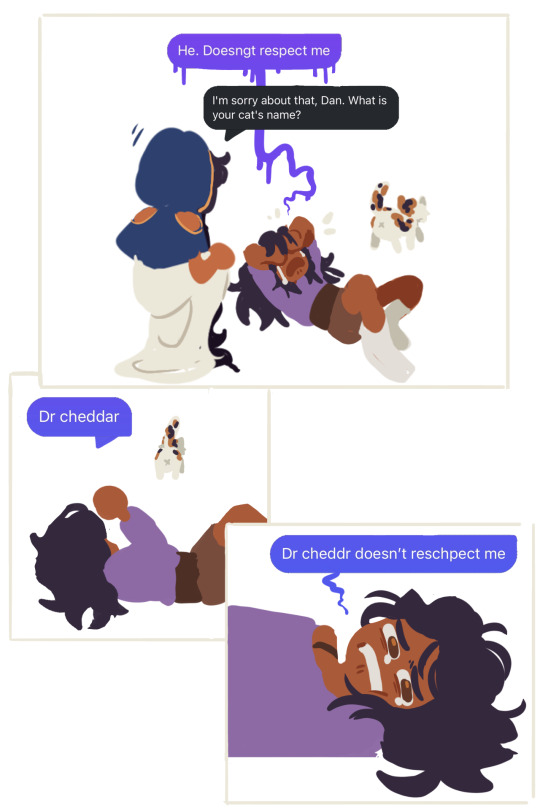
You guys don't see visions of god when you're wasted?
#its avatar rules#irene is watching (and judging)#minecraft diaries#mcd#irene the matron#aphmau mcd#aphmau#meowki#comic#digital drawing#digital art#fanart#my artwork#im hyperfixating hard
1K notes
·
View notes
Text

Give me the buddy cop movie now
1K notes
·
View notes
Text

Chetney Pock O'Pea remains the luckiest old bastard in all of Exandria (and Ruidus)
#critical role#cr spoilers#c3 spoilers#c3e113#campaign 3#cr 3#vox machina#bells hells#grog strongjaw#chetney pock o'pea#travis willingham#I just imagine the Matron hovering over him in Caleb's tower like '...dammit we MIGHT need him for tomorrow'#Bertrand really did pass on the torch to Chet because he was made to die and still won't fucking die XD#I do appreciate how each campaign group has their own unique brand of chaos too
2K notes
·
View notes
Text

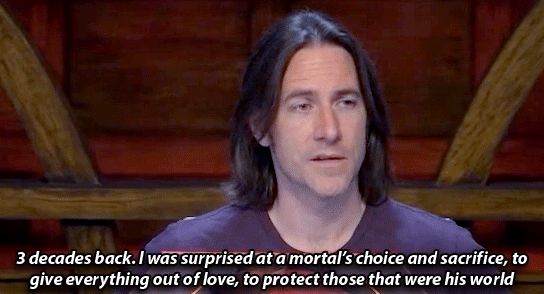



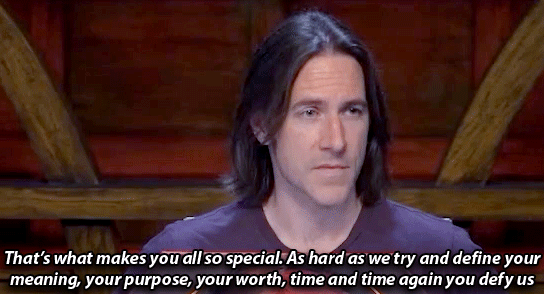
Endless Bells Hells
#vaxildan#vax'ildan#the matron of ravens#the raven queen#matt mercer#dorian storm#robbie daymond#critteredit#critical role#cr3#bells hells#cr spoilers#cr3e109#criticalroleedit#critroleedit#myedit#endless bells hells
2K notes
·
View notes
Text

Are you here to take me to Mama?
—
Rewatching ep3 and every time I think about the Emissary I get choked up, so I painted them again! He’s going home, and there will be light 🍎
#critical role#cr downfall#critical role fanart#downfall#the emissary#the raven queen#matron of ravens#Erathis#noshir dalal#cr fanart#cr art#critical role art#critical role campaign 3#floweroflaurelin art#quick painting with both liberties and shortcuts taken! I am feeling Emotion#he’s a kid!! and he wants his mother!! what if I sobbed again#I knew going in I was gonna love this character but I didn’t anticipate just How much#🥲
3K notes
·
View notes
Text

#critical role#critrole#critrole memes#exu downfall#cr downfall#calamity downfall#critical role downfall#the raven queen#matron of ravens#emhira#cr spoilers#cr memes#cr shitpost#courtesy of me#1k
1K notes
·
View notes
Text

Norsery Rhymes from A to Z Matrons Frisavae, the Paternal Frisian Mothers
Happy Thorsday! - Here’s another 20 min sketch of a Norse (and Germanic, Celtic) mythological characters. This week it’s the Matrons Frisavae / Matronis Frisiavi / Frisaevones / Frisiavian
Three guardian ancestral protective Matron (Mothers) and Goddesses, found mentioned in several shrines and stones around Wissen near Xanten.
Their name has generally been understood to simply be a place , or tribal name. The Frisian Tribes. The Full name found was Matribus Frisavis Paternis. Meaning the Germanic matrons would be the matrons and protectors of the Frisians Paternal lines.
#norse mythology#Frisavae#norsemyth#Frisiavi#conceptart#characterdesign#concept art#character art#drawing#sketch#lineart#linedrawing#character design#goddesses#matrons
1 note
·
View note
Text

CR downfall art I forgot to post <3
#critical role#critical role downfall#critical role campaign 3#critical role fanart#exandria unlimited#silaha#archheart#pelor the dawnfather#sarenrae#matron of ravens#the lawbearer#the emissary#the wildmother#asha#dnd#my art
1K notes
·
View notes
Text
There's just something so fascinating about the way the Exandrian pantheon has decided to handle the Aeor Situation™ - by electing a few of their kind to be born as mortals in order to infiltrate the city.
The first to bring herself low was Ioun, and I can only imagine how lonely that must have been for her. To feel infinite wisdom creeping into her adolescent mind? To rise through Aeor's ranks knowing what they'd do to her if the authorities discovered the truth of her existence? Waiting, hoping, perhaps even praying that the other gods would follow through with the plan.
Sarenrae has a husband and children as Trist. I can't help but consider the parallels to Liliana Temult, with a 'higher calling' pulling a mother away from her family. The conversations in the temple suggest that she would have been aware of what she was by the time she started her family. Yet she loves them, cherishes them, even knowing that she might not see them again. Will Amaris, Haylie, and Topher learn that Trist is a goddess? Or will that only be discovered when they find their way to her realm in Elysium?
The Matron was once mortal, and she willingly returned to that form in order to help her newfound siblings dismantle the Aeorian threat. Her steward since childhood was Purvan, helping raise and guide her despite his old age. Imagine being a little girl, guarded by the Champion of Ravens himself and his wolven companion, completely unaware of your own divinity until later in life. Imagine the night she woke up, remembering her ascendency, seeing Purvan and recognising him.
And what of the families that gave birth to and raised the four Betrayer Gods? What of the halfling family who watched their precocious daughter scale a fence with far too much ease than it should be? The day the tortle's parents found him crying in pain and tearing at his skin to distract himself from a memory so distant and yet so real? Or Milo, who became a priest, not to follow in the light of the Dawnfather (like his parents may have thought), but to mock his brother even as a mortal?
These gods spent entire childhoods with families and friends, taking refuge from the skirmishes caused by their other siblings. Who, despite those similarities, have very different opinions of humanity, of Aeor, and themselves.
#it's late but i'm in my feels about this#like i thought it was mildly depressing how dynasty kids wake up one day with dreams of their old lives#but imagine realising you're a god in the body of a 15-year-old boy and you need to find your siblings so you can infiltrate a hostile city#critical role#critical role spoilers#cr spoilers#cr meta#exu downfall#cr downfall#the prime deities#betrayer gods#ioun#the knowing mistress#arcadia#sarenrae#the everlight#cr trist#the matron of ravens#cr emhira#asmodeus#the lord of the hells#milo cowst#the spider queen#umleta
1K notes
·
View notes
Text
Molaesmyr, or "Why wiping out a city is okay if you're me", by Ludinus Da'leth.
I was waiting for a drop like that, to be honest. To find out that Ludinus has already done what was, for the gods, their darkest moment, and for him it was Tuesday.
The gods destroyed Aeor because Aeor was pointing a gun at their heads, for them it was self-defence and they still tried to find other options first. Ludinus destroyed Molaesmyr to try and reach the moon, and wrote it off as an acceptable loss.
And the thing is, the people of Molaesmyr were just as, if not more helpless against Ludinus than Aeor was against the gods! Aeor had a god-killing weapon in their basement that they were gearing up to use! And when the gods did attack Aeor, they had to do so in mortal form, which rendered them much weaker. For the first half of the battle in the Factorum Malleus, Aeor is winning, the gods are losing HP and falling to bad saving throws and getting interrupted at every turn. It's only once SILAHA gets free of the stun and manages to drop his Meteor Swarm on the wards that the tide turns.
There was no such chance for Molaesmyr. They probably didn't even know what he was doing until he'd already exploded their homes. They weren't pointing a gun at him. They were just in the way.
But it's okay when Ludinus has vastly more power than anyone else and throws their lives away to achieve his goals.
I think gods like the Dawnfather, the Everlight, the Arch Heart, the Lawbearer, the Knowing Mistress, and the Matron of Ravens care vastly more about the mortals that Ludinus claims to champion than he does. I think it broke their hearts to kill as many as they did, while for Ludinus, it was easy.
#Critical Role#Critical Role Spoilers#C3E102#Campaign 3#Critical Role: Downfall#CR Downfall Spoilers#SILAHA#The Arch Heart#Corellon#Ludinus Da'leth#The Dawnfather#Pelor#The Everlight#Sarenrae#The Lawbearer#Erathis#The Knowing Mistress#Ioun#The Matron of Ravens#The Raven Queen
1K notes
·
View notes
Text
"When will your time be served? When will your debt be paid?"
Keyleth keeps thinking about Vax being indebted to the Matron. And that makes sense, because it is a way to explain why he left her. If he had no choice, there is no reason to blame him, and instead she can blame the Matron for keeping him away.
Except I don't think Vax is still indebted to the Matron, at least not in the way that Keyleth is implying. Vax wilfully followed his God. He wilfully upheld the things the Matron stands for - one of them accepting death as part of life, even his own.
How can Vax allow himself to be saved? How can he do that and not revoke anything he has learned to accept through worshipping the Matron?
Keyleth has to accept that it was Vax's choice. That is wasn't the Matron who killed him, but Vecna, and that Vax was not willing to be resurrected.
So she can finally be angry with Vax. So she can finally be angry with the situation. And so she can finally start to heal.
#keyleth of the air ashari#vax'ildan#vaxleth#hey look it is all a metaphor!#to be sure I am not blaming either Vax of Keyleth#or the Matron#I'm only blaming Vecna#cr spoilers#critical role#cr meta
930 notes
·
View notes